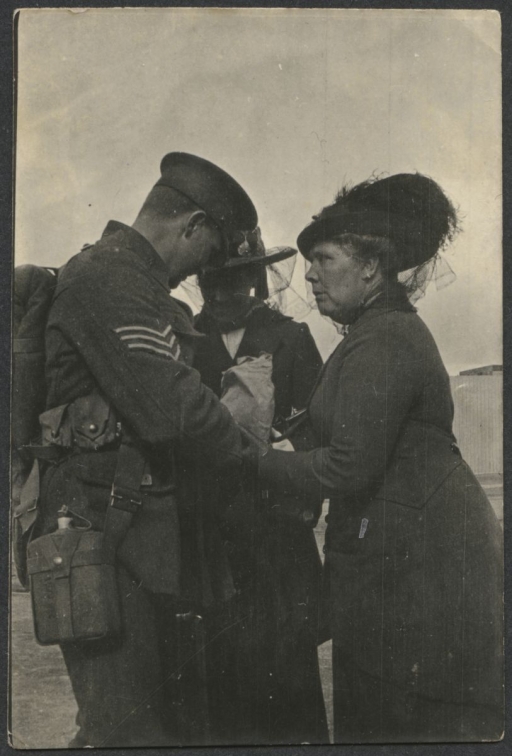The main body of troops from New Zealand who enlisted to fight in the First World War sailed to join the Allied side on October 16th 1914.
More than 8,000 soldiers boarded 10 troop ships in Wellington Harbour, the largest single group of New Zealanders ever to leave the country.
To mark the 100th anniversary, the Royal New Zealand Navy frigate, HMNZS Te Kaha sailed from Wellington today (October 16th 2014) to take part in Centenary commemorations overseas.
Beforehand, the people of Wellington were invited to an open day on the ANZAC class frigate, which has just returned to sea after a two-year upgrade.
A heritage trail sign describing the events of 1914 has also been unveiled on the New Zealand capital’s waterfront.
New Zealand’s first operation of the First World War was the capture of German Samoa in the Pacific Ocean on August 29th 1914.
HMNZS Te Kaha’s first port of call will be Albany in Western Australia. There, she will join events on October 31st 2014 marking the centenary of the joint departure of the Australian Imperial and New Zealand Expeditionary Forces to Egypt.
In 2015, Te Kaha will sail to Gallipoli for the 100th anniversary of the ANZAC landings on the Turkish coast.
More than 100,000 New Zealanders served abroad in the First World War, from a population of little more than a million. They suffered almost 60,000 casualties, of whom around 18,500 died in the fighting or as a result of the war.
After Gallipoli, New Zealanders saw action in the Middle East and on the Western Front.
To discover more about New Zealand’s role in the First World War, go to the New Zealand History website.
Source: New Zealand WW100
Image: Unknown photographer, courtesy Auckland War Memorial Museum – Tamaki Paenga Hira PH-2003-1 Thomson, George William.
Posted by: Peter Alhadeff, Centenary News
